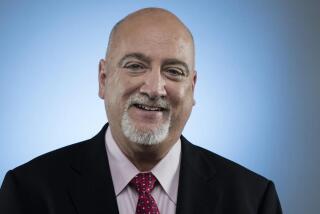PASSINGS
Mary Lou Forbes
Journalist won Pulitzer
Mary Lou Forbes, 83, a journalist who won a Pulitzer Prize in 1959 at the Washington Star for her coverage of Virginia school desegregation and became founding editor of the Washington Times’ Commentary opinion page, died Saturday of breast cancer at Inova Alexandria (Va.) Hospital.
Forbes began her career at the Star as a 17-year-old copy messenger. Rapidly promoted to reporter, she made her greatest impact during the 1950s reporting on “massive resistance” in Virginia to desegregation in public schools. The resistance, pushed by the political machine of then-U.S. Sen. Harry F. Byrd Sr., aimed to shut down public schools rather than integrate.
Mary Lou Werner was born June 21, 1926, in Alexandria and raised by her widowed mother. After graduating from high school in 1942, she began studying math at the University of Maryland, but her family’s finances led her to quit school and seek employment.
She initially applied for a job in the Star’s accounting department, but the job was taken and she was directed to the newsroom. There she said she thrived, as long as editors did not think she was married or planning to have children.
In the late 1950s, she became one of the paper’s first female editors. When she was hired, she recalled, the newsroom’s top executive asked her, “Do you think that men will take orders from you?”
The Star, an afternoon paper, folded in 1981, and three years later Forbes joined the fledgling Washington Times. She started the Commentary section, which features opinion writing distinct from the op-ed page.
Godfrey Rampling
Runner won Olympic gold
Godfrey Rampling, 100, who was believed to be Britain’s oldest Olympian and who won gold in the 4x400-meter relay at the 1936 Berlin Games, died in his sleep June 20 at a nursing home in Bushey, England.
He was the father of actress Charlotte Rampling.
The Olympian ran the second leg of the 1936 relay with teammates Fred Wolff, Bill Roberts and Arthur Brown, beating the U.S. and German teams.
At the 1932 Summer Olympics in Los Angeles, Rampling had been on the British team that took the silver medal in the 4x400 relay.
The British runners’ preparation was fairly lackadaisical.
“Training was a complete farce,” Rampling told the Independent newspaper in 1996. “. . . When I felt like it, I ran round [a cricket ground] or sprinted up and down in short bursts. Then I would run for about 600 yards for so-called stamina training. The Americans were astounded at our lack of training.”
Rampling was born in Blackheath, southeast of London, on May 14, 1909, and spent 29 years in the British army’s Royal Artillery, retiring with the rank of colonel in 1958.
Don Coldsmith
Doctor, Spanish Bit Saga author
Don Coldsmith, 83, a family physician who gained fame as the author of the Spanish Bit Saga novels about the Plains Indians, died Thursday at the University of Kansas Hospital in Kansas City, Kan., said his wife, Edna.
She said he had a stroke June 20 after attending the Western Writers of America conference in Oklahoma City.
Coldsmith was the group’s 1983-84 president. In 1990, he received its Spur Award for “Changing Wind,” one in the Spanish Bit Saga series.
Coldsmith began work in the 1980s on the Spanish Bit Saga novels, which chronicle the momentous change in the lives of Plains Indians wrought by the introduction of the horse by Spanish explorers.
His 29th Spanish Bit Saga novel, “The Moon of Madness,” is awaiting publication.
The son of a Methodist minister, Coldsmith was born Feb. 28, 1926, in Iola, Kan. He served as a combat medic with the Army in the Pacific during World War II. After the war, he was assigned to the occupation troops in Japan, where he provided medical care for accused Japanese war criminals, including Prime Minister Hideki Tojo.
Coldsmith graduated from Baker University in Baldwin City, Kan., and received his medical degree in 1958 from the University of Kansas. He practiced medicine in Emporia, Kan., until 1988, when he closed his practice and became a full-time writer.
He wrote 40 books, plus a weekly newspaper column on horses and many magazine articles. He was a popular lecturer on the subject of the West and its history.
Ken Roberts
Announcer on radio and TV
Ken Roberts, 99, an announcer whose urbane baritone introduced the long-running TV soap operas “Love of Life” and “The Secret Storm,” and who memorably parodied his dramatic delivery on the 1970s children’s show “The Electric Company,” died June 19 of pneumonia at New York Presbyterian Hospital.
In a career that spanned eight decades, Roberts acted on Broadway and established himself as a radio personality before making the transition to television during its infancy. He introduced two CBS soap operas, “Love of Life” from 1951 to 1971 and “The Secret Storm” from 1954 to 1974.
Among his last roles was an off-screen bit as an announcer in Woody Allen’s “Radio Days” (1987), a film that also featured his son, actor Tony Roberts.
On radio in the 1940s, one of Roberts’ most prominent roles was master of ceremonies on the quiz show “Quick as a Flash,” which dramatized a moment in history and asked contestants to guess the event. He was also in demand narrating commercials, and this later carried over into his TV work for Mogen David Wine advertisements.
Roberts was born Saul Trochman on Feb. 22, 1910, in Manhattan. He attended law school before entering show business in the late 1920s at a small New Jersey radio station. In 1931, he won a full-time position as an announcer at CBS’ New York outlet, where he stayed for 20 years.
In the 1937 Broadway comedy “Hitch Your Wagon,” he played a dimwitted football star.
Roberts signed on with the PBS children’s show “The Electric Company” in the early 1970s and is best remembered for announcing a sketch called “Love of Chair,” a play on “Love of Life.”
-- Times Staff and Wire Reports
More to Read
Start your day right
Sign up for Essential California for the L.A. Times biggest news, features and recommendations in your inbox six days a week.
You may occasionally receive promotional content from the Los Angeles Times.






